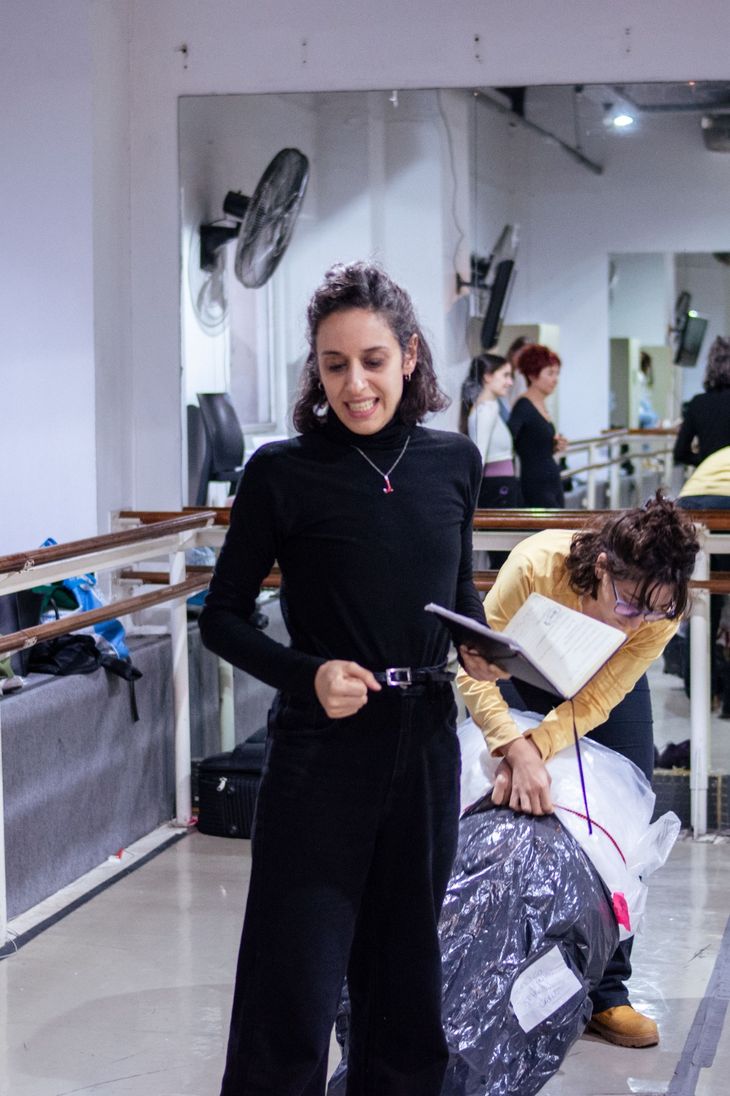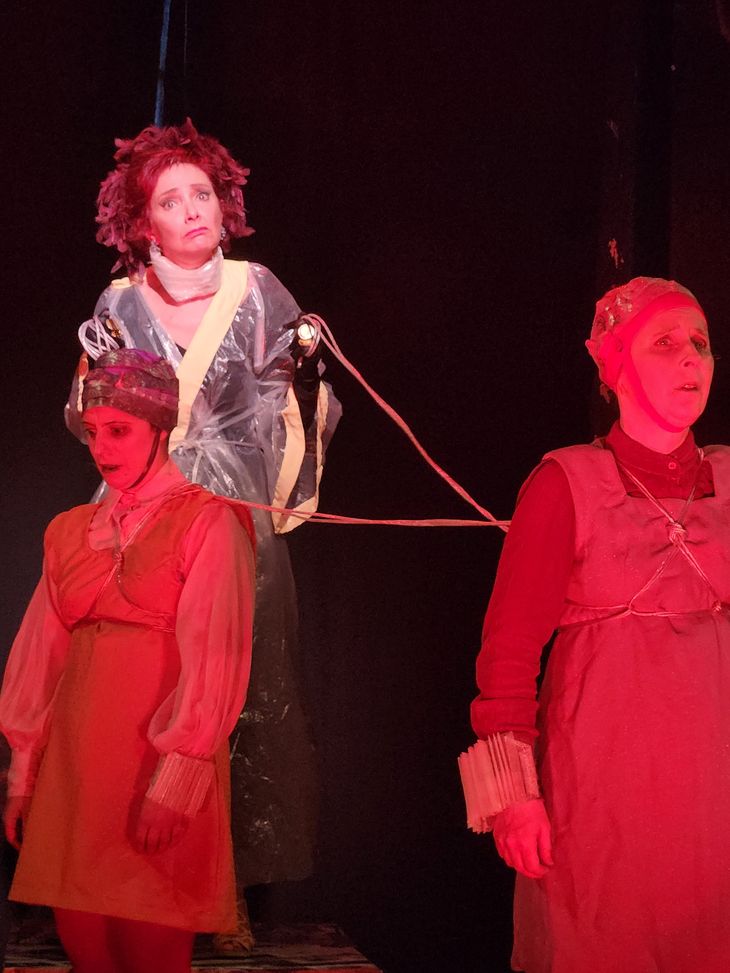“We appeal to visual, physical resources and a non -linear story, with images that generate impact on the public, linear text works lose me,” says Marina Cachan, Who re -states “Fex sister”the new production of the Arden Theater collective, a work that goes in the line of the absurd and presents a dysfunctional family where the impossibility of communication becomes the dramatic engine. A fantastic but incapable mother, daughters in potential but empty, and relationships that range between love and pain make up this family portrait.
With a cast composed of Mariel Adan, Florencia Converto, Mariel Zub and Paula Marchiis presented in area 623, on Saturdays in May and June at 6 pm. We talked with Cachan.
Hnas and mother in school.jpg
Mother’s scene and the two daughters.
Journalist: What story does the work tell? How is this bold look on family ties?
Marina Cachan: It tells the story of a family, two sisters and a mother, and the unknown about something that happened that the public will make conclusions of whether that happened or not. It is a family with enough inconveniences, the particular thing is the way of telling it and the bold is how we tell it and that is absurd.
Q.: How did they create the space loaded with symbolism, how is that little daily curse?
MC: I come from dance and there is more abstraction. We usually build with images not with words, we seek not to tell everything or explain it. The symbolic comes from there. We point out that everything is said and about explained, we trust an attentive, intelligent spectator with all his symbolic world that draws conclusions about what he sees and what these symbols mean. The whole group has a physical and thinking disposition towards the symbolic. Beautiful and interesting images are assembled. We started rehearsing with a text of mine presented at the Biennial of Young Art that reached the semifinal and in six essays all the text came out. It flowed very fast. The symbolic part is the simplest, the most difficult thing is to order to tell the story.
Q.: How is this dysfunctional family and how differs from so many who went through the theater as the Coleman family?
MC: It is a theme of humanity, we are that, all families have their turns. The big difference is the way to tell, nothing is obvious, the story is full of metaphors, the aesthetic is thought, there is a difference, there is a rare and particular beauty in what one sees, but beauty at last. It is not a text theater where they start talking, it is a theater where everything counts and the contradictions of the human being are in the skin. We are not one thing, everything is not constant suffering, sometimes in dysfunctional families only suffering appears, here the story comes from family stories, in my family there is some black humor that crosses it and there is the difference. Not everything is a downturn and you don’t have to count linearly to move.
Q.: How is this work from the absurd? Are there Pinter echoes?
MC: We all form in the eccentric of the 18 of Cristina Banegas, who works a lot about the absurdity with the idea of moving from thread to return to what the text needs. That unites us and interests us. The theater when it is linear and only in word loses me as a spectator. The absurd allows freedom to count. Not only Pinter appears but Ionesco, Pavlovsky, we read them, we act, the absurd gives work to the viewer, something does not happen indifferent.
IMG-20250507-WA0020.jpg

Marina Cachan director in an essay.
Q.: What is it like to face an independent theater production today? How do you see the theatrical scene?
MC: The independent theater is the same, it was always, it is knowing how to do with little and it is pure desire and passion, it is what we like. We do not want to do without that despite the economic. Creativity blooms when the limits appear, so we have so much independent theater. It is my way of doing, they are the waters in which I know how to swim and I don’t stop doing it for money. In the theatrical scene there is everything, much of the most interesting is in the Independent and then accesses other places of visibility. From there comes what has better ideas and jobs. I would love to have much more money and do everything but the best is the best.
Source: Ambito
I am an author and journalist who has worked in the entertainment industry for over a decade. I currently work as a news editor at a major news website, and my focus is on covering the latest trends in entertainment. I also write occasional pieces for other outlets, and have authored two books about the entertainment industry.




